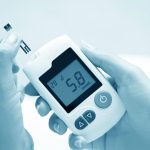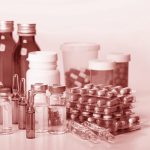USA (FDA)
IMDRF publishes updated guides covering governance activities and membership
The International Medical Device Regulators Forum (IMDRF) recently posted a series of updated guidelines on the group’s standard operating procedures (SOP), criteria for joining, its mission and scope, as well as application forms for joining.
The SOP covers the frequency of IMDRF management committee meetings, the composition of the management committee, expedited procedures for joining the management committee, how countries can join as official observers, and how industry members can join as invited observers.
IMDRF Standard Operating Procedures
https://www.imdrf.org/sites/default/files/2022-12/IMDRF%20Standard%20Operating%20Procedures%20Dec%2022.pdfIMDRF Terms of Reference
https://www.imdrf.org/sites/default/files/2022-12/IMDRF%20Terms%20of%20Reference%20Dec%2022_0.pdf
CANADA (HC)
Consultation on proposed agile regulations and guidance for licensing drugs and medical devices
Health Canada is proposing new targeted provisions and regulatory amendments to the Food and Drug Regulations and Medical Devices Regulations. These changes will continue to advance our modernization agenda and help to reduce regulatory irritants and roadblocks to innovation. We are seeking feedback on both the proposed regulations and on multiple guidance documents related to the proposal.
Pulse oximeters: Overview
Pulse oximeters are usually a small unit with a built-in clip that’s placed on the fingertip. Other types have a clip or wire probe with adhesive that’s applied to the ear, foot, hand, forehead, back or nose. They are used to check your pulse rate and how much oxygen your blood is carrying. They do this by passing beams of light through the blood. The procedure is painless.
The blood oxygen level measured with an oximeter is called your oxygen saturation level (or SpO2). In most healthy people, this number is between 94% and 100%. It can be lower in people with lung or heart conditions. During the COVID-19 pandemic, there was an increase in home use of pulse oximeters.
EUROPE (EU)
MDCG 2022-21 – Guidance on Periodic Safety Update Report (PSUR) according to Regulation (EU) 2017/745
The guidance is applicable to medical devices which have been certified under the MDR and to devices which have been certified under MDD 93/42/EEC or AIMDD 90/385/EEC except for devices which have stopped being placed on the EU market before the MDR date of entry into application (DoA).
Manufacturers of class I devices do not have to prepare a PSUR; instead, they should prepare a Post-Market Surveillance Report (PMSR) as detailed in Article
MDCG 2022-4 rev.1 – Guidance on appropriate surveillance regarding MDR Art.120 transitional provisions – devices covered by MDD or AIMDD certificates
This guidance document outlines the activities to be performed by notified bodies8 as part of the appropriate surveillance defined in Article 120(3) second subparagraph MDR. In order to clarify elements to be verified by notified bodies, this guidance document also covers requirements concerning certain manufacturers’ obligations, especially in respect to their quality management system.
The document applies to notified bodies that have lawfully issued certificates under the MDD or the AIMDD, regardless of whether or not those notified bodies have applied for designation or are designated under the MDR (see MDCG 2019-10 rev.19) as long as the respective authority responsible for notified bodies has the right to and does monitor notified body’s activities under Article 120(3) MDR.
The designation of notified bodies under the upcoming Artificial Intelligence Act
According to AI Act Article 31, the NBs shall apply for notification to the notifying authority of the Member State in which they are established, to be entrusted with the assessment of the AI.
As per article 32 covering the Notification Procedure, the notification/designation may be granted only to the conformity assessment bodies which have satisfied the requirements laid down in Article 33 of the AI Act.
Functional specifications for the European Database on Medical Devices (EUDAMED)
Regulation (EU) 2017/745 on medical devices and Regulation (EU) 2017/746 on in vitro diagnostic medical devices were published in the OJ on 5 April 2017, entered into force on 25 May 2017 and shall apply from 26 May 2021 and from 26 May 2022 respectively. They will repeal Council Directives 90/385/EEC on active implantable medical devices, 93/42/EEC on medical devices and 98/79/EC on in vitro diagnostic medical devices.
Article 34 of Regulation (EU) 2017/745 obliges the Commission to draw up the functional specifications for EUDAMED in collaboration with the MDCG. This document will also be a reference for the independent audit to be performed for verifying that Eudamed has achieved full functionality.
Manual on borderline and classification under Regulations (EU) 2017/745 and 2017/746 – Version2
Determining whether a given product falls under the definition of a medical device and the application of the classification rules fall within the competence of the authorities of the Member States where the product is on the market. However, when different interpretations of EU legislation occur, public health may be put at risk and the internal market distorted. As both are matters of concern to the Member States and the Commission, it essential to facilitate a dialogue among regulators. Appropriate participation of various stakeholders should also be ensured.
The Manual, records the agreements reached by the Member State members of the Borderline and Classification Working Group (BCWG) following the exchanges under the Helsinki Procedure under Regulation (EU) 2017/745 on medical devices (the MDR) and Regulation (EU) 2017/746 on in vitro diagnostic medical devices (the IVDR). The purpose and operation of the Helsinki procedure is described in the dedicated document.
UNITED KINGDOM (MHRA)
Medical devices: UK approved bodies
This guidance explains about UK approved bodies listed under Medical Devices Regulations 2002 (SI 2002 No 618, as amended) (UK MDR 2002).
- Under Part IV of the Medical Devices Regulation as they apply in Great Britain (SI 2002 NO 618, as amended) (UK MDR 2002)
- Under Part IV of the Medical Devices Regulation as they apply in Northern Ireland (SI 2002 NO 618, as amended) (UK MDR 2002) until 25 May 2022
Life Sciences Council Joint Statement on Medical Devices Regulatory Reform
Life Sciences Council Joint Statement on a new agreement to accelerate the delivery of the future UK HealthTech regulatory system.
The UK Medicines and Healthcare products Regulatory Agency (MHRA) CEO June Raine has agreed to the publication of aligned principles on the reform of medical device regulations.
Raine represents MHRA on the Life Sciences Council, a group that brings the regulatory agency together with representatives of the UK government and the Association of British HealthTech Industries. Initial proposals are scheduled for release in February and will address how concepts such as the use of e-labelling and recognizing the approvals of other trusted jurisdictions, such as the US, could work to free up regulatory resources and reduce burdens on industry.
IRELAND (HPRA)
Applications for Certificates of Free Sale for Medical Devices
This guidance document explains about Certificates of free sale are documents used in the registration of devices in third countries (i.e. countries outside the European Economic Area). They indicate that the devices listed are eligible for sale in the EU market.
Under the framework of the Directives a manufacturer (as defined in the legislation), an authorised representative, system and procedure pack producer or a manufacturing facility which is established in Ireland can apply for a certificate of free sale.
INDIA (CDSCO)
Registration of Medical Device Testing Laboratory in Form MD-40 as per Medical Devices Rules (MDR) 2017 for Testing of Medical Devices on behalf of the manufacturer
In order to enhance the testing capacity of medical device in the country identification registration & empanelment of government private testing laboratory for Medical Devices testing is under consideration as per MDR 2017.
In this regard, laboratories which have capacity for testing of medical device & are NABL accredited are requested to submit the application in Form MD-39 along with requisite fees and documents, through online portal www.cdscomdonline.qov.in., for taking further necessary action in the matter.
HONG KONG (DOH)
Update of the Post-market Surveillance (PMS) Reporting Form for Certain Medical Devices
The post-launch monitoring report form for certain medical devices has been updated. The local responsible person can use the above form to report on the monitoring of specific medical devices after they are launched on the market. The form number is now fixed as MD108 and can be found on the Medical Devices Division.
Announcement on continuing the trial implementation of the administrative management system for medical devices to accept sales approval from the State Drug Administration and the Korea Food and Drug Safety Administration
The Medical Device Division will continue to accept sales approval issued by the State Drug Administration on a trial basis to support Class B/C/D in vitro diagnostic medical devices in compliance with the “Basic Principles of Safety and Performance” of the Medical Device Administration System (MDACS) (technical reference: TR -004). The pilot program will run until December 31, 2023.
MALAYSIA(MDA)
Malaysia revises device law to require filings for license renewal 90 days before expiry
MDA has amended the Medical Device Act 2012 to require companies to apply to renew their establishment licenses at least 90 days before their expiry date. As MDA explained in a notice to disclose the change, applications made beyond the license expiry date will not be accepted and the holder of the expired license will need to file a new application. MDA will not refund license renewal fees paid by companies that file their applications after the 90-day deadline.
When first published, the act stated “a licensee may apply for renewal of its establishment license to the Authority not later than one year before the expiry date of the establishment license.”
SAUDI ARABIA (SFDA)
Clinical Studies Requirements for Medical Devices and Supplies (MDS-REQ 2)
The purpose of this document is to define and clarify the requirements for conducting clinical studies for medical devices and supplies in the Kingdom (Saudi Arabia)
This document applies to clinical studies verification facilities (CRO-Organization Research Contract) and other entities wishing to conduct clinical studies for medical devices and supplies or performance evaluation studies for laboratory and diagnostic devices in the Kingdom (Saudi arabia).


